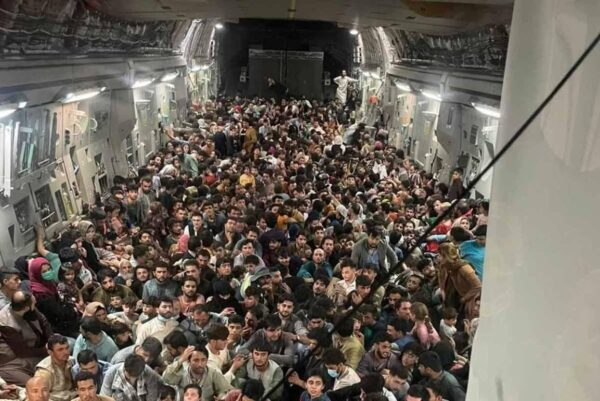This sponsored column is by James Montana, Esq., Doran Shemin, Esq. and Laura Lorenzo, Esq., practicing attorneys at Steelyard LLC, an immigration-focused law firm located in Arlington, Virginia. The legal information given here is general in nature. If you want legal advice, contact James for an appointment.
Whatever else one might say about it, the hurried evacuation of U.S. citizens, lawful permanent residents, contractors and Afghans was not orderly. A large number of Afghan civilians — no one really knows how many at this point — are coming to our shores. The purpose of this Statutes of Liberty is to explain what will happen to them, as a legal matter, after they arrive.

The refugee flow can be reasonably divided into three big categories — approved Special Immigrant Visa holders, approved refugees awaiting resettlement and parolees. We’ll take each in turn.
Afghans who hold Special Immigrant Visas (SIVs) received those visas in recognition of services rendered to the U.S. government during the war in Afghanistan and subsequent occupation. (Obtaining those visas is hugely complex with delays measured in years. We fielded panicked calls in the last days before the airport closed, asking for our help in getting SIV petitions filed — the timeline simply didn’t work.) Those who enter with SIVs will be treated in a matter similar to refugees and will be eligible for resettlement benefits for a limited period of time — up to eight months — after they arrive. And those who enter with approved SIVs will, with the help of law offices like ours, apply for green cards.
Approved refugees are already holding their resettlement papers before they arrive. Those resettlement papers are obtained by applying for refugee status abroad, receiving designation as a refugee, and then obtaining placement in the United States. Our educated guess is that there are very few of these folks in the initial wave of Afghans. But, given the outflows of refugees from Taliban-controlled Afghanistan, more will be coming. Given a few years, expect refugees in neighboring countries to apply for (and succeed in obtaining) refugee status. Many will resettle here.
The largest, and most legally challenging, group is the parolees. Parole, in the immigration context, means permission to enter the country legally without an ordinary visa. Many of the Afghans arriving in this country will arrive with this tenuous status. In the absence of legislation, the ordinary next move would be for them to apply for asylum protection. We expect that many will do so, and, given the situation in Afghanistan, many will receive asylum.
As always, we are happy to answer questions in the comments.


